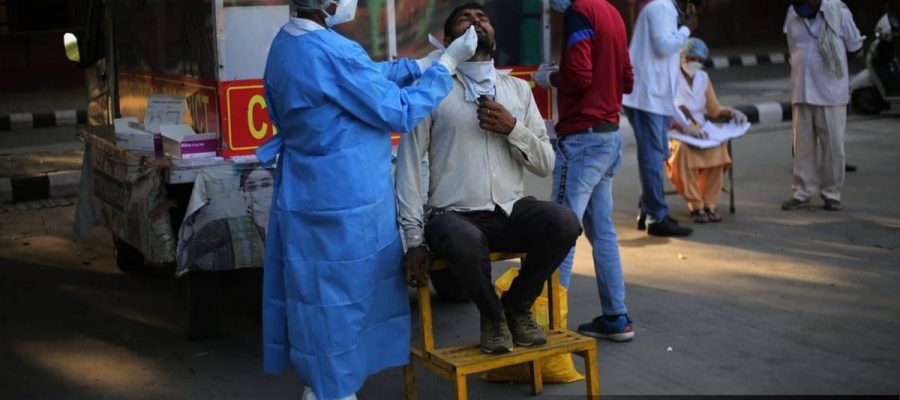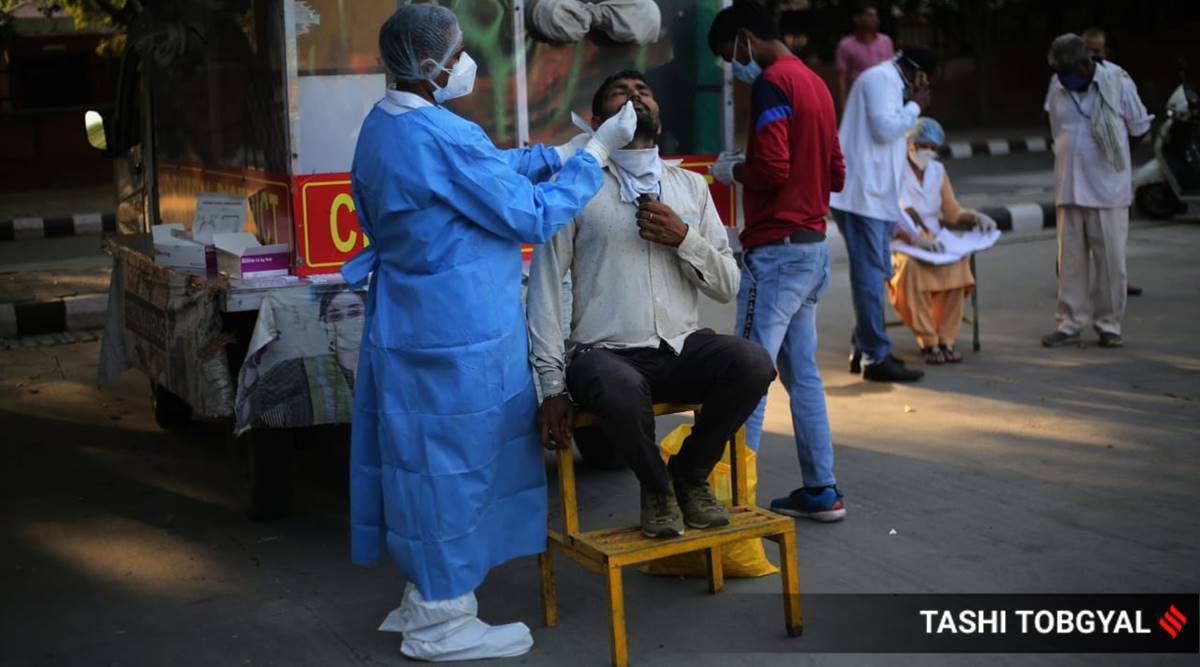On Friday, India reported 38,949 new cases and 542 more fatalities in the last 24 hours.
Even as India is witnessing a downward national trend in terms of Covid infections, the states have been cautious about lifting Covid protocols totally, considering the possibility of a third wave that, experts say, might hit the country in the next few months.
On Friday, India reported 38,949 new cases and 542 more fatalities in the last 24 hours. With this, the total number of Covid-19 cases in the country has reached 3,10,26,829 while the death toll remains at 4,12,531. The ministry said there are 4,30,422 active cases, while 3,01,83,876 people have so far recovered from the infection.
Kerala is one state that is refusing to follow the national curve of declining coronavirus cases. On Friday, Kerala reported 13,750 new cases and 130 deaths, taking the total count in the state to 31,30,833 and the death toll to 15,155.
Here are the Covid-19 restrictions that states are following as of now:
Delhi
The Delhi government has allowed stadia and sports complexes to reopen from July 5, but without spectators, as per the Delhi Disaster Management Authority (DDMA) unlock guidelines issued on Sunday afternoon.
Schools, universities, and colleges continue to remain shut with Chief Minister Arvind Kejriwal confirming that there are no recent plans to open the same. Cinema halls and swimming pools too are shut in the capital city.
Meanwhile, Delhi Metro trains continue to run with 50 per cent capacity as the Delhi Metro Rail Corporation’s (DMRC) request to relax the limit has not been considered yet. Standing commutes are also not allowed.
Delhi was under a lockdown between April 19 and May 30. The city started unlocking in phases from May 31 with the permission to factories within industrial areas and construction activities to resume. On June 7, markets, malls, and the Delhi Metro services were allowed to open at 50 per cent capacity, and from June 14, the 50 per cent cap was removed in the case of markets and malls.
Kerala
Kerala, which is at present witnessing a rise in Covid cases, has decided to ease the lockdown curbs on Sunday, Monday and Tuesday in view of Bakrid which falls on July 21.
The state government said July 18, 19, and 20 will see less restrictions allowing shops including textile, footwear, electronic, fancy, and jewellery to remain open till 8 PM and this is applicable to A, B, and C category local self- government bodies.
Earlier on Tuesday, the state had announced that complete lockdown will be observed on July 17 and 18. “Banks and other financial institutions will be closed for July 17 & 18. Shops in category A, B & C will be allowed to open till 8 pm on the days which they were allowed earlier,” the official statement read.
The announcement came hours after, the Kerala woman medical student, who was India’s first COVID-19 case tested positive again. “She is reinfected with COVID-19. Her RT-PCR is positive, antigen is negative. She is asymptomatic,” Thrissur DMO Dr K J Reena told news agency PTI.
Maharashtra
Maharashtra Health minister Rajesh Tope on Wednesday said that the lockdown-like restrictions in the state will not be relaxed anytime soon. At present, malls and theatres in the state continue to remain closed despite repeated demands by retailers to reopen them.
However, other shops selling non-essential are allowed to open till 4 pm on weekdays and those of essential items can open till 4 pm on all days. All malls and theatres remain closed. Office attendance (including government offices) is limited at 50%. Film shooting is allowed in bubble with no movement outside post 5 pm.
Maharashtra Deputy Chief Minister Ajit Pawar on Friday said Pune and some other districts will not witness immediate relaxation of coronavirus restrictions as the positivity rate in these areas has not declined much.
Speaking to reporters after a Covid-19 review meeting here, Pawar said the government has decided to continue the level three restrictions in Pune. The state government has devised five levels of restrictions, the fifth level being the harshest, depending on the severity of the pandemic in a given area.
“In some districts the positivity rate has come down to zero per cent, however, in some districts such as Kolhapur, Satara, Sangli, Solapur, Pune, Raigad and Ahmednagar, the positivity rate has not declined as much as it should have, so the current restrictions will remain in force,” he said. Shops in Pune will, thus, be allowed to operate till only 4 pm, he said.
West Bengal
The Mamata Banerjee-led government, in its revised Covid-19 guidelines, decided to allow Kolkata Metro to operate five days a week — between Monday and Friday — with 50% seating capacity from July 16.
However, it decided to keep most of the other coronavirus-related restrictions that have been imposed in the state till July 15. Salons and beauty parlours can open from 11am to 6pm with 50% seating capacity provided that the staff has been vaccinated.
Gyms can work with 50% capacity. As per the government’s notification, all bazaars and markets can remain open from 6 am to noon, and other shops from 11 am to 8 pm.
Private and corporate offices have been allowed to work from 10 am to 4 pm at 50% capacity. Buses can also operate with 50% occupancy.
However, local and suburban trains will remain closed to the general public. All schools, colleges, universities, polytechnics, anganwadi centres and other educational institutions will continue to remain closed. All kinds of gathering would continue to remain prohibited.
Tamil Nadu
Chief Minister MK Stalin on Friday announced that the Covid restrictions would be extended till July 31. Activities like public/private bus transportation within states (except Puducherry), flight services, theatres, bars, swimming pools, social/political gatherings and other events, reopening of schools/colleges, zoo will still be restricted.
However, the government has provided relaxation for ITIS, Industrial schools, typewriting training institutes, who are permitted to function with 50% of students on a rotational basis. Teachers are allowed to visit schools to carry out works related to admission, distribution of textbooks, etc.
Source: Read Full Article


